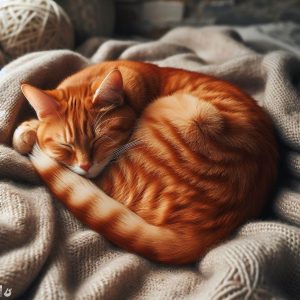Have you ever been tempted to grab a baby wipe for a quick clean-up when your curious kitty gets their paws or fur dirty? Baby wipes seem like an easy solution for spot-cleaning messy cats.
But before you reach for that convenient moist towelette, it’s important to ask: Are baby wipes actually safe for use on cats? Or could they potentially harm your precious feline?
As a caring pet parent, you likely have some important questions:
- What ingredients in baby wipes should I avoid for cats?
- Can I use wipes on my cat’s coat, paws, ears and skin?
- Are fragrance-free options safer?
- Should I only use pet-specific cat wipes?
- When are baby wipes dangerous for cats?
This guide covers everything you need to know about safely using baby wipes on felines. Keep reading for:
- Baby wipe ingredients to steer clear of
- Tips for cautious wipe usage when cleaning cats
- Potential health risks from unsafe wipes
- Safer specially-formulated pet wipes
- FAQs on baby wipe safety for cats
After reading this in-depth article, you’ll feel fully informed to make the right call for conveniently yet gently cleaning your kitty!
Can I Use Baby Wipes on My Cat?
The short answer is yes, you can safely use baby wipes on cats if you are very selective about ingredients and follow certain precautions.
Many standard baby wipe components like gentle cleansers, purified water, and soothing aloe vera are harmless to cats when used externally.
However, other common ingredients like fragrances, antibacterials, and preservatives can be harmful to cats when ingested or overused.
So it’s crucial to choose a fragrance-free, sensitive skin formula without any harsh chemicals. And you must prevent your cat from chewing or ingesting the wipes.
With the right wipes and careful use, baby wipes can provide a convenient way to spot clean non-toxic dirt from kitty’s coat, paws, ears and skin folds when needed between full baths.
Next, let’s take a deeper look at specific baby wipe ingredients to avoid around cats, and how to use wipes safely.
Baby Wipe Ingredients Unsafe for Cats
While many standard baby wipe components like water and gentle cleansers are non-toxic for felines, these common ingredients can pose risks:
Fragrances
Fragranced baby wipes contain synthetic perfumes added for a pleasing scent. These fragrances often include phthalates, aldehydes and phenols.
Unfortunately, these chemicals can cause significant issues if licked or ingested by cats, potentially resulting in:
- Gastrointestinal distress like vomiting, diarrhea, drooling, and lack of appetite
- Liver toxicity or neurological issues with repeated exposure over time
- Skin irritation, rashes, wheezing, and respiratory distress
- Compulsive licking of fur and paws from an allergic reaction
So you should always select unscented, fragrance-free wipes formulated for sensitive skin when using on cats.
Quaternary Ammonium Compounds (Quats)
Some antibacterial baby wipes contain quats like benzalkonium chloride. These chemicals are toxic if ingested by cats.
Exposure can lead to:
- Oral inflammation, drooling, and tongue ulcers
- Vomiting and lack of appetite
- Breathing difficulties
- Organ damage to the liver, kidneys or lungs
Avoid any wipes listing quats or benzalkonium chloride in the ingredients.
Alcohol and Hydrogen Peroxide
Some “disinfecting” baby wipes contain added chemicals like isopropyl alcohol or hydrogen peroxide.
Ingestion of these ingredients can irritate the mouth and GI tract of cats, potentially causing:
- Drooling
- Oral pain
- Vomiting
- Diarrhea
So check that alcohol and peroxide are not in the ingredients list.
Essential Oils
Some baby wipes feature light botanical or essential oils like lavender, tea tree or eucalyptus added for scent or antibacterial properties.
These potent plant oils can be toxic to cats when ingested. Always choose an unscented, fragrance-free wipe.
Harsh Soaps and Detergents
Some baby wipe cleaning agents like sulfates or harsh detergents can disrupt the delicate pH balance of feline skin when used frequently.
This can lead to dryness, irritation, itchiness and excessive licking in wiped areas. Opt for gentle, non-irritating cleansers.
Toxic Preservatives
The preservatives used to extend shelf life in some baby wipes may be harmful to cats if ingested regularly.
Ingredients like parabens, MIT, CMIT, and BIT can potentially cause kidney, liver and thyroid damage with prolonged exposure.
Ideally, choose a wipe with a self-preserving formula or natural preservatives like citric acid.
Now that you know what to avoid in wipes, let’s go over some tips for safely using baby wipes on cats.
6 Tips for Safely Using Baby Wipes on Cats
Follow these precautions when using baby wipes for spot cleaning your cat:
1. Select an Unscented, Hypoallergenic Variant
Steer clear of fragrances, opting for a gentle wipe designed for sensitive human skin. This avoids risky chemicals.
2. Verify It’s Free of Quats, Alcohol, Peroxide
Scan the ingredients list and ensure no quaternary ammonium compounds, alcohols, peroxides or botanical extracts are included.
3. Choose a Non-Irritating Cleanser
Look for soothing, non-irritating cleansers that won’t disturb feline skin pH like shea butter or glycerin-based formulas.
4. Spot Clean Externally Only
Never use wipes around eyes, nostrils, genitals, or open wounds. Only wipe externally on the face, ears, paws, and coat as needed.
5. Prevent Ingestion
Keep wipes stowed away between uses. Carefully monitor your cat when wiping them down to avoid chewing or licking.
6. Rinse After Any Oral Contact
If your cat still manages to lick a wipe, promptly use a wet cloth to wipe their mouth. Offer fresh water to rinse away any residue.
Using these safety practices minimizes risks when using baby wipes judiciously as an occasional supplementary cleanser for cats. But for regular use or cleaning sensitive areas, a pet-formulated wipe is the safest choice.
Potential Health Risks of Toxic Baby Wipes in Cats
While very mild irritation may occur simply from brief contact, ingesting or long-term repeated use of harmful baby wipes can result in these more serious adverse health effects:
Skin and Eye Irritation
Fragrances, antibacterials and harsh detergents in wipes may irritate and dry out feline skin and mucus membranes. Reactions can include:
- Redness, itchiness, and inflammation of wiped areas
- Watery eyes and crusty discharge
- Sneezing from respiratory irritation
Respiratory Distress
Some cats may develop coughing, wheezing or breathing difficulties if baby wipe chemicals trigger asthma or allergic airway inflammation.
Oral Inflammation and Burns
Swallowing quats or other harsh antibacterials may burn or ulcerate the mouth, tongue, and esophagus, causing substantial oral pain and drooling.
Gastrointestinal Upset
Ingesting many baby wipe ingredients may irritate the digestive tract, leading to vomiting, diarrhea, loss of appetite, and dehydration.
Liver and Kidney Damage
Repeated exposure to certain chemicals like quats and parabens may accumulate in the body over time, eventually impairing normal liver and kidney function.
Neurological Issues
Fragrance chemicals called phthalates may affect the nervous system if ingested regularly, resulting in lethargy, tremors, lack of coordination, or seizures.
So carefully consider ingredients and use baby wipes judiciously based on the formulation. Seek prompt veterinary care if any concerning reactions develop.
Now let’s explore some safer specially-formulated pet wipe alternatives intended for regular cat grooming and cleaning.
Cat-Safe Alternatives: Pet Wipes for Grooming Cats
For worry-free regular wiping and cleaning of felines, a cat-specific pet wipe designed for their sensitive skin is the safest choice. Some top options include:
Pogi’s Grooming Wipes
- Fragrance-free, non-toxic plant-based formula
- With soothing aloe vera and vitamin E
- For safely wiping face, paws, ears, rear, and coats
- Reviewers praise gentleness and lack of residue
Earthbath Grooming Wipes
- Fragrance-free and hypoallergenic
- With lanolin and aloe to moisturize skin
- Balanced pH for feline skin
- Can use on entire body from nose to tail
TropiClean Spa Wipes
- Gently clean with green tea leaf extract
- Chamomile and aloe provide calming and hydration
- Thick, durable textured wipes
- Made for convenient at-home spa pampering
Petkin Cat Wipes
- Hypoallergenic, fragrance and alcohol-free
- With calming chamomile and calendula extract
- For face, paws, rears and skin
- Reviewers praise convenience and gentleness
Using these pet-specific wipes formulated for sensitive cats allows thorough routine cleansing worry-free!
How Frequently Should You Bathe Your Cat?
Most felines only need occasional baths every 2-4 months, if that. Over-bathing strips their natural skin oils. Use pet wipes for gentle cleaning between full washes when needed.
FAQs About Using Baby Wipes on Cats
Here are answers to some commonly asked questions about baby wipe safety for cats:
Are baby wipes toxic to cats?
Some ingredients like fragrances, quats and alcohols can indeed be toxic if ingested by cats. But fragrance-free sensitive wipes without harsh chemicals are generally safe if used carefully externally on felines.
Can I use baby wipes on my cat’s face?
You can gently wipe your cat’s face with a sensitive baby wipe if they tolerate it well. But never wipe near eyes, nostrils or mouth. Immediately rinse any oral contact.
Are baby wipes safe for cleaning cat ears?
Do not use baby wipes to clean inside your cat’s ears, as the moisture risks infection. To clean dirty outer ears only, use a gentle wipe without alcohol or fragrance.
Should I use pet wipes or baby wipes on my cat?
For maximum safety and regular use, a specialty pet wipe designed for cats is best. But when in a pinch, you can use fragrance-free sensitive baby wipes on occasion if your cat tolerates them and ingestion is prevented.
Can I use baby wipes to clean up cat poop?
You can use gentle sensitive wipes to spot clean your cat’s rear end outside the anus after defecation accidents. But pet wipes are gentler. Never wipe inside the anus.
The Takeaway: Use Baby Wipes Judiciously and Safely on Cats
When chosen carefully and used safely, sensitive baby wipes without harsh chemicals can provide occasional gentle cleansing of non-sensitive areas on cats.
But for regular wiping and cleaning delicate regions, a specialty pet wipe designed for felines is the safest choice. Always keep wipes locked away out of your cat’s reach!
Using the right wipes sparingly with strict precautions, baby wipes can be a convenient way to spot clean your cat when they make a messy misadventure! Just be very choosy about ingredients and prevent ingestion.



